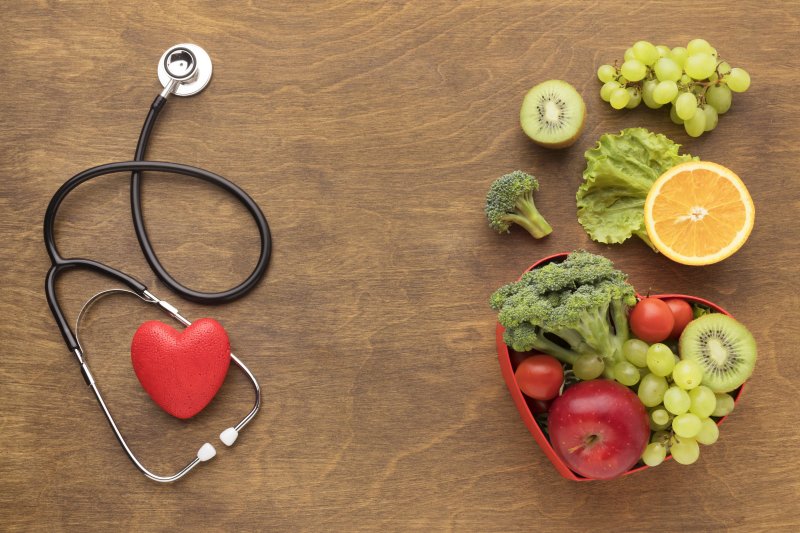
What is hypertension?
Hypertension or high blood pressure is a health condition that requires a serious and careful approach to nutrition. This condition affects a large number of adults worldwide and is considered a “silent killer” because it often shows no visible symptoms until it reaches dangerous levels. Certain foods can significantly contribute to increased blood pressure, while others can help stabilize it and maintain it within healthy ranges.
The effect of salt on blood pressure
The primary goal of nutrition for people with hypertension is reducing salt (sodium) intake. Salt has a direct effect on water retention in the body, which leads to increased blood volume and, consequently, elevated blood pressure. Expert recommendations suggest that daily salt intake should not exceed 5-6 grams (about one teaspoon). It’s important to note that most of the salt we consume doesn’t come from the salt shaker, but from processed foods and ready-made products.
Minerals that help regulate blood pressure
It is extremely important to consume foods rich in potassium, magnesium, and calcium daily. These minerals have a proven role in regulating blood pressure and improving blood vessel function. Potassium is found in fresh fruits and vegetables (especially bananas, potatoes, beans, spinach, and avocados), while magnesium is present in whole grains, nuts, and green leafy vegetables. Calcium is found in low-fat dairy products, as well as in sardines and green leafy vegetables.

The importance of fiber in nutrition
A fiber-rich diet can also have a positive impact on blood pressure. Fiber helps maintain a healthy body weight, which is an important factor in controlling hypertension. Sources of fiber include whole grains, legumes, fruits, and vegetables. The recommended daily fiber intake is between 25 and 30 grams.
Foods to avoid
A balanced diet that includes all key nutrients, while simultaneously reducing the intake of saturated fats, sugar, and alcohol, can have a significant impact on long-term cardiovascular health. Processed foods and foods high in trans fats should be avoided, as they can increase bad cholesterol (LDL) levels and contribute to blood vessel damage.

Mediterranean diet as an ideal model
Adopting the Mediterranean diet achieves excellent prevention and control of high blood pressure. This eating pattern is rich in vegetables, fruits, whole grains, healthy fats (especially olive oil), fish, and lean proteins. Numerous studies have confirmed that the Mediterranean diet can significantly lower blood pressure and reduce the risk of cardiovascular diseases.
The importance of lifestyle
In addition to proper nutrition, regular exercise, maintaining optimal body weight, stress reduction, and adequate sleep also play important roles in controlling hypertension. A combined approach that includes all these factors provides the best results in long-term blood pressure control and preservation of heart and blood vessel health.
Individual approach
It’s important to emphasize that each person should adapt their diet to their specific needs and health condition. It’s advisable to consult with a doctor or nutritionist to develop an individual nutrition plan that best suits your needs in controlling hypertension.
Which foods should I completely avoid if I have high blood pressure?
Completely avoid highly processed foods, cured meats, and industrial snacks due to their high salt content. Limit alcohol intake, carbonated drinks, and foods high in saturated fats. Canned soups and sauces often contain too much sodium, so it’s best to replace them with homemade versions.
How much salt can I consume daily if I have hypertension?
The recommended daily salt intake for people with hypertension is a maximum of 5-6 grams (about one teaspoon). Keep in mind that most of the salt we consume comes from processed foods, not from the salt shaker. Try to season food with herbs and spices instead of salt.
Do coffee and tea affect blood pressure elevation?
Moderate coffee consumption (1-2 cups daily) usually doesn’t significantly affect blood pressure in most people. Green tea may even have a positive effect due to the antioxidants it contains. Excessive caffeine consumption can temporarily increase blood pressure, so it’s important to monitor how your body reacts.
Which potassium-rich foods can help lower blood pressure?
The best sources of potassium are bananas, potatoes, beans, tomatoes, spinach, avocados, and dried fruits. Potassium helps the body eliminate excess sodium and relaxes blood vessel walls. It’s recommended to consume 3,500-4,700 mg of potassium daily through a varied diet.

